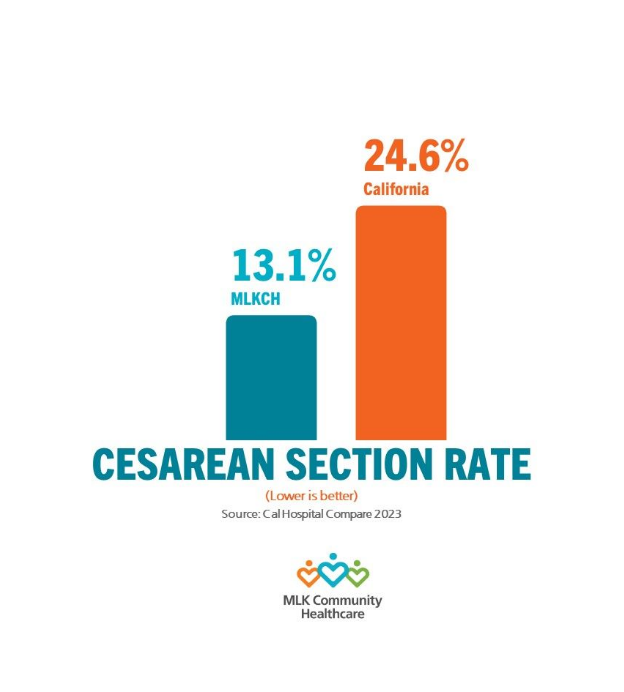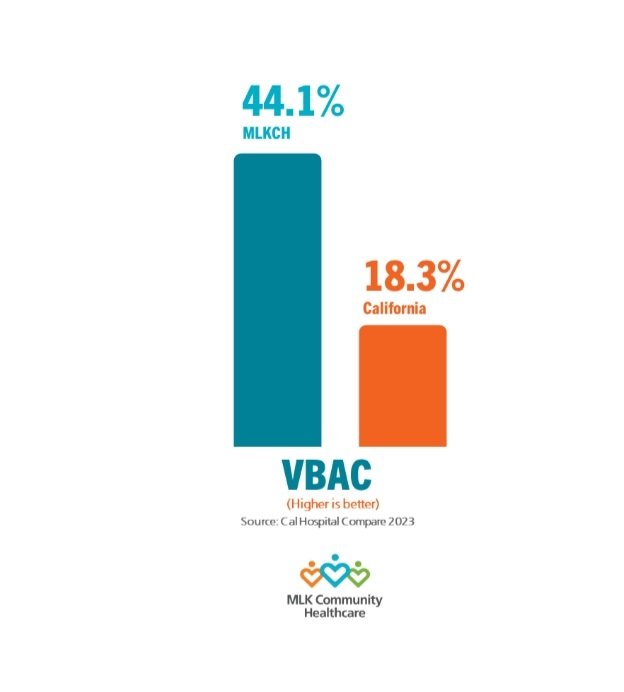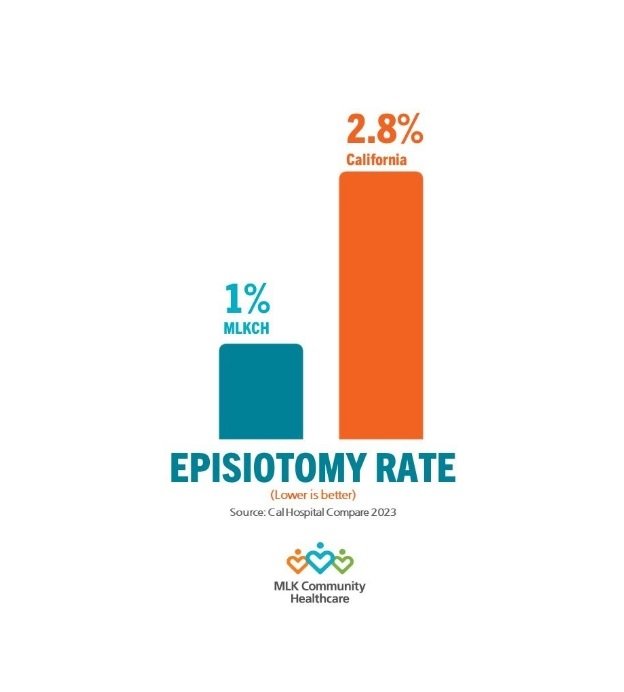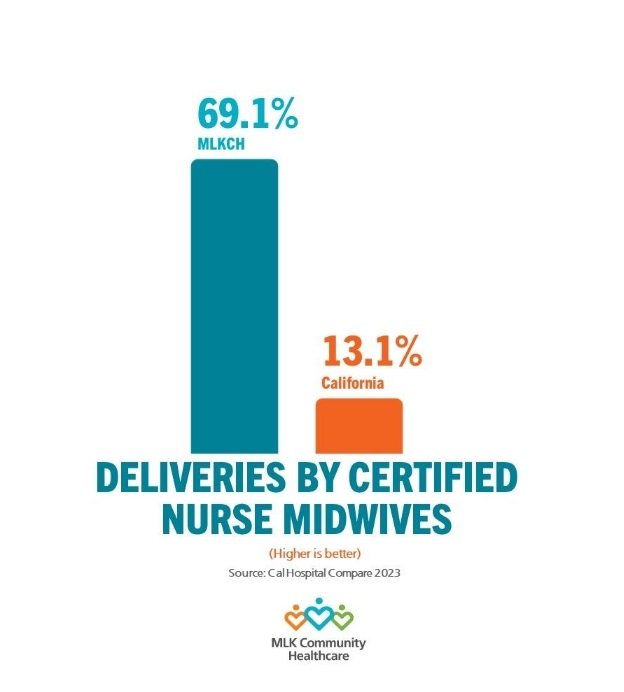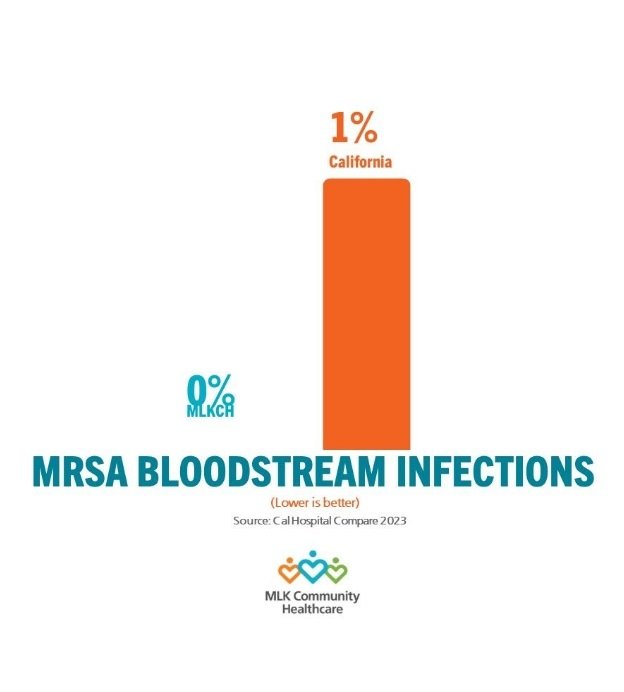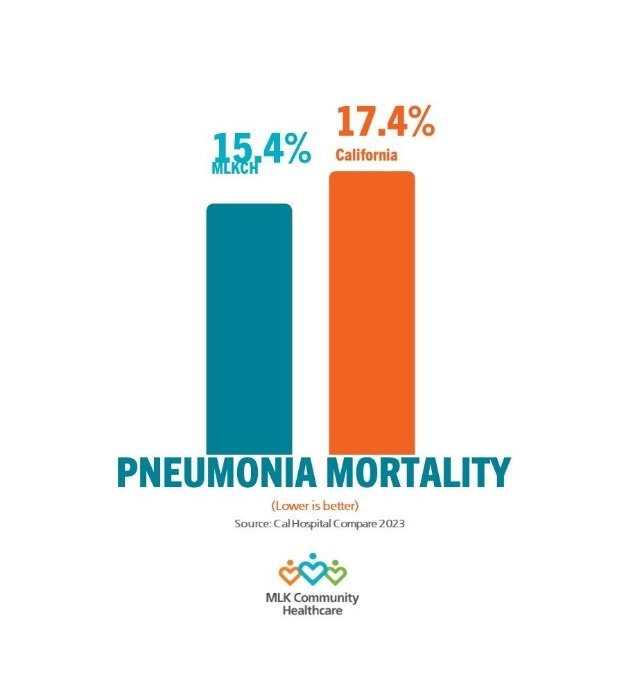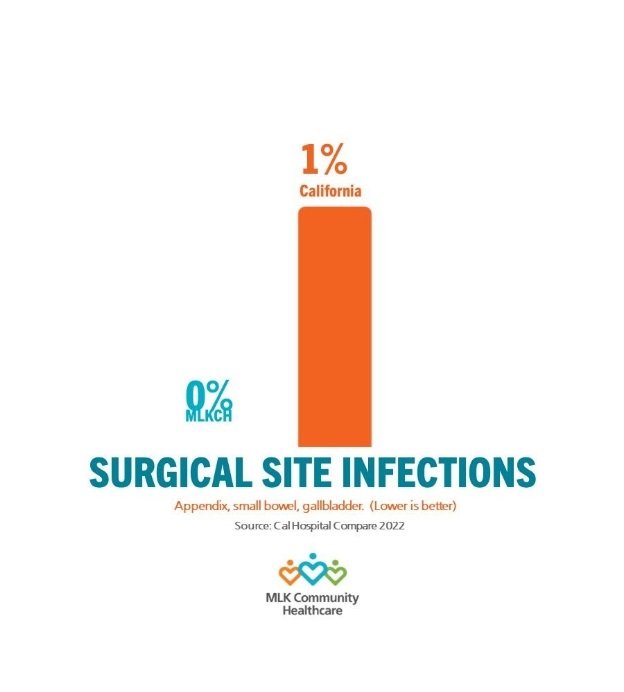How we deliver high-quality care
In order to achieve the best possible results for our patients, MLKCH adheres to national standards of excellence. Those standards include:
We have a Maternity Safety Program
MLKCH takes a coordinated approach to pregnancy and childbirth that includes doctors, midwives and specialists available to our patients at all times. We also partner with the First 5 Welcome Baby Program, which assists new moms with education and support.
We have an Infection Control Program
MLKCH has a “sepsis protocol” – a plan in place that guides health care workers on how to prevent infection at every stage of patient care.
We have a Respiratory Monitoring Program
MLKCH provides round-the-clock monitoring of patients who have trouble with their lungs or are having trouble breathing.
We have met or exceeded National Patient Safety Goals
MLKCH meets national goals on patient safety as required by the Joint Commission, a healthcare accreditation organization. These goals include having processes in place to ensure that medicine is administered properly, hand washing guidelines are followed, and a process is in place to prevent patient falls.
Learn more about National Patient Safety Goals.
We protect our patients from the flu
MLKCH offers all employees a flu shot in an effort to protect its employees, patients and visitors against the disease. In 2018, almost all MLKCH staff and patients received a flu shot, exceeding the national standard.
We enforce compliance
MLKCH has a Compliance Department that ensures that all staff follow proper procedures in the care and treatment of patients through training, enforcement and constant awareness-raising activities. A confidential compliance hotline is also available to help employees report issues that affect our quality.
We walk the walk
MLKCH leadership visit patients and observe the way our health team provides care on a regular basis. This visiting, or “rounding,” helps us learn about our care process and what can be improved and helps us promote a culture of safety.
